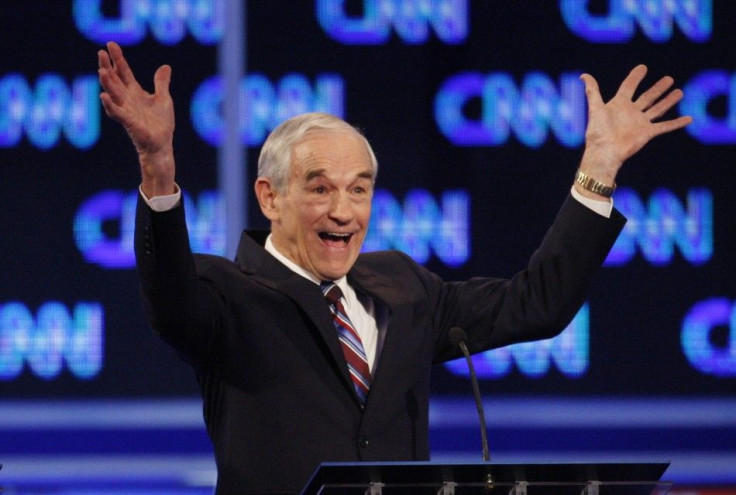Ron Paul 2012: How He Can Influence the Republican Nomination
OPINION

Texas Congressman Ron Paul continues to score high in national electability polls. On Tuesday, A USA Today/Gallup poll found that if the election were held today, Paul would get 46 percent of the vote compared to President Barack Obama’s 49 percent.
The two are in a statistical tie, but Paul doesn’t have a broader base of support from Florida’s Republican to win Tuesday’s winner-take-all primary. Paul is also at a disadvantage with the media. The press hasn’t given him the same amount of coverage as they do the other candidates.
Assuming he won’t win the nomination, what could he do to influence the outcome of the general election?
Ron Paul could run as a third-party or independent candidate:
Although this is a compelling idea, he is unlikely to make it happen. Paul has been adamant about saying he won’t run as an independent. The main issue is that Paul has pumped a lot of resources into Campaign for Liberty, his political action committee focused on cultivating “Ron Paul Republicans” -- voters who want to see a more libertarian focus in the party.
The organization has helped him push his philosophy into the mainstream, and this election cycle shows that -- but a third-party run would likely erase these gains. Paul has a lot of support from significant party activists and donors (e.g. members of the U.S. military) and he has raised about $32 million for the organization through September 2011.
But these influential forces are unlikely to give the same support for an independent run because Paul would split the Republican vote -- which would help President Obama win re-election.
That’s what happened in the 1992 and 2000 elections. Ross Perot’s took votes from George H. W. Bush, while Ralph Nader subsequently eroded Al Gore’s final tally.
Paul could threaten a third-party run to get the VP slot or be a cabinet member:
It’s probably less likely that (likely GOP nominee) Mitt Romney would choose Paul as his running mate; he’s most likely going to pick a social conservative governor to balance the ticket. But Newt Gingrich has been making gestures toward Paul, implying that he sees a significant role for Paul in a possible administration. Gingrich has made complimentary remarks about Paul in the press as of late.
Paul’s supporters are lower-income and younger. If Gingrich were to make Paul his running mate, Gingrich would be better situated to beat President Obama. Gingrich has strong support from evangelicals and older voters, so he’s going to need to balance that out with other demographic segments. The key to winning the presidency is to reach a broad base of voters.
John Kerry lost in 2004, partly because he only got votes from young and old Democrats living in urban areas. Romney would do better in November with younger voters on his side – most of his supporters are older urbanites.
Paul could win enough delegates to set-up a nomination fight at in Tampa:
If Paul has a good share of delegates coming out of the primaries, his count could give him a bargaining chip to force the nominee to include him as part of a possible administration.
This would be especially true if Paul threatens a third-party run, or teams up with Gingrich to combine their numbers to force Romney’s hand. This, of course, depends on the final delegate count, and whether or not Gingrich stays in the race.
If Romney wraps up the nomination in the next couple of primaries, Paul would be in a weaker position at the convention, but he could still compel Romney to make some gestures toward him.
Final Thought
Regardless of the outcome of this year’s GOP primary race, Ron Paul has made an impact on the Republican Party, and as we move through the next decade, libertarians are likely to become the party’s majority coalition -- especially if younger, ambitious libertarians adopt an evolved version of Paul’s philosophy and win elections. These politicians will eventually shift the conservative dialogue away from social conservatives.
The long-term prospects for Ron Paul’s libertarianism bode well, but it’s up to how Paul uses his power in this year’s race to determine whether or not a libertarian candidate becomes a key factor in influencing the outcome of the presidential election.
Jamie Chandler is a political scientist and American Politics scholar at Hunter College in New York City.
© Copyright IBTimes 2024. All rights reserved.





















